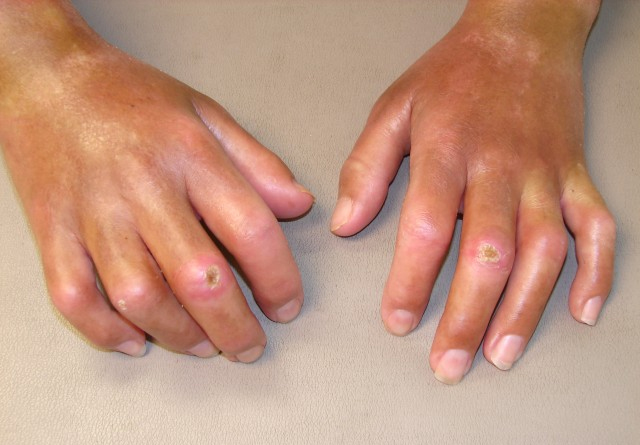Systemic Sclerosis


Systemic Sclerosis
What is Systemic sclerosis?
Systemic sclerosis, also known as scleroderma, is a rare autoimmune disease where the body produces too much collagen, a substance that causes thickening and hardening of the skin and sometimes affects internal organs like the lungs, kidneys, heart, or digestive system.
How can I recognize it?
You might notice:
- Tight, shiny, or thick skin, especially on the fingers, hands, or face
- Fingers that turn white or blue in the cold (called Raynaud’s phenomenon)
- Swelling or puffiness in the fingers, especially in early stages
- Painful wounds (ulcers) over fingertips
- Small, hard bumps under the skin (calcium deposits)
- Difficulty swallowing, heartburn, or acid reflux
- Bloating, constipation, or diarrhea
- Shortness of breath or dry cough if the lungs are affected
Not everyone will have all symptoms, and how it affects the body can vary.
